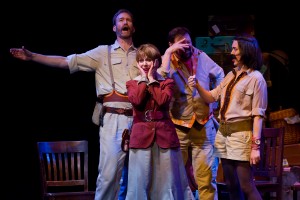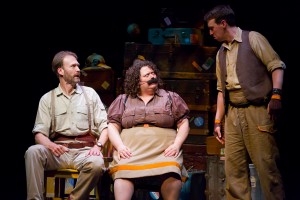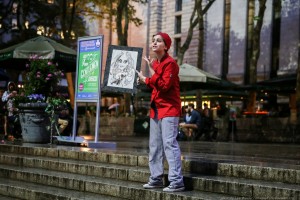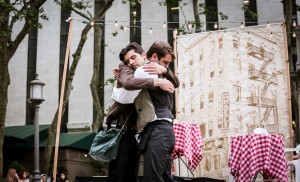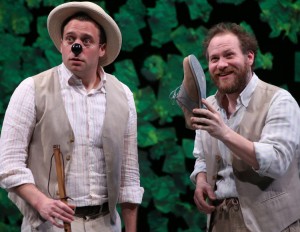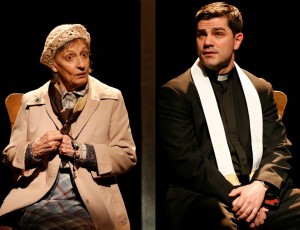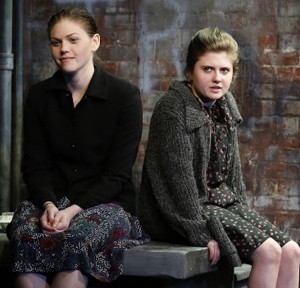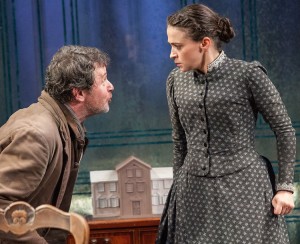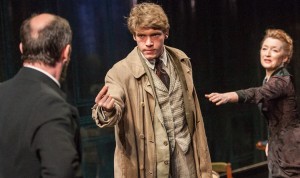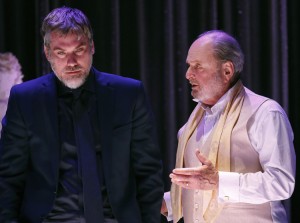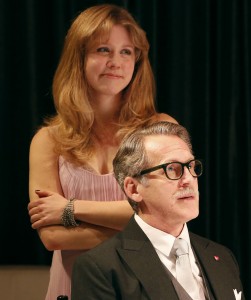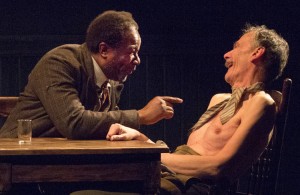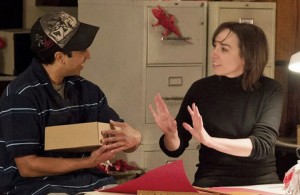We can instantly access information 24 hours a day on our cell phones about the latest and most exotic places in the world to visit. Our friends and family members share their vacation photos and videos on social media. My younger sister traveled around the world when she graduated from college with her friend from high school, and she inspired me to live in Japan, India, Nepal and Bali. Traveling Papers inspires us to get out and experience the world, or to at least read some great literature about travel. Today we can fly to breathtaking beaches in developing countries, like Costa Rica or Indonesia, and stay at a discounted luxury resort we found online. There are also packaged family cruises to the Bahamas, or one could simply pack their backpack and travel alone through Europe. Our innate curiosity for adventure, exploration and self-discovery can take us to places and cultures we never imagined existed. Creators Barbara Bosch and Martin Tackel take on creating a theatrical journey that reminds us of our innate love for traveling in Traveling Papers.
“Wherever you go, go with all your heart,”—Confucius, and other inspirational quotes from Ralph Waldo Emerson, Blaise Pascal, Henry David Thoreau, and other famous people provide feel-good moments throughout this play. In "The Globetrotter Diaries," photographer Michael Clinton sparks our curiosity to travel to Asia when he shares about being in Nepal and “watching cremations in the tradition of the Hindu religion.” This production is a travel tapestry of literary work from Mark Twain, Edith Wharton, W. Somerset Maugham and Anthony Bourdain. By covering the work of so many profound people within 90 minutes, it does not give the audience enough time to connect with the individual stories. These rich tales touch our hearts and minds and speak to us from the past. It is like recalling the first time you read Robert Frost's "The Road Not Taken." The real brilliance of this production is the weaving of all of these stories throughout time and the deliveries are executed with humor and gratitude.
Watching seven actors in beige safari outfits, who are distinguished by their age, gender, weight and hairstyle, lacks the variety to engage the lens of New York theatergoers, and does not represent a universal connection to travel. These similar characters do not speak for the whole population and there is a clear disconnect when the production aims to show how humankind has a deep desire for exploration. The bare, black stage with only wooden chairs and a stack of vintage trunks and suitcases adds to the visual blandness. A more diverse ensemble could add to each character’s unique point of view and create more entertaining contrast.
In scene 15, you will become immersed into the short story, “The Guiding Miss Gowd” by novelist Edna Ferber, and a suspension of disbelief will set in. It takes place in Rome with British guide Mary Gowd (Gwen Eyster) as she attempts to save "Tweetie" Gregg (Jillian Stevens) from being romantically swept away by Italian officer Signor Caldini (Kyle Doherty). Eyster successfully carries this scene with humor and an inner conflict through the mastery of her eyes and facial expressions. Her eye movements are so skillful that the audience is naturally drawn in and instantly curious about the next character she plays.
The ensemble also features Gwen Arment, John Camera, Peter Husovsky and Macy Idzakovich. As one group of actors perform, the others sit silently in chairs along the walls. The performing actors announce their own actions at times, and it can sound redundant. It would be more entertaining if director Bosch instructed the sitting actors to voice the actions of the performing actors.
Traveling Papers does accomplish igniting the kind of unexpected journeys that Wolfgang Amadeus Mozart, Marcel Proust, Marco Polo, and many others have shared throughout time. The value of this production relies heavily on the past great work of other people. For audience members who are already familiar with these stories, there is a natural cultural context and appreciation. The production would have been stronger with more original content and fewer stories to develop the characters. Traveling Papers is recommended for those who love great literature and the art of travel. Flipping through Facebook, Pinterest and YouTube in search of the next vacation can be stimulating, but live theater strokes an inner yearning to travel outside of what we think we already know.
Traveling Papers runs until June 20 at Theatre Row's The Lion Theatre (410 West 42nd St. between 9th and 10th Aves.) in Manhattan. Evening performances are Wednesday-Saturday at 8 p.m. and matinee performances are Saturday at 2 p.m. and Sunday at 3 p.m. There is no performance on Saturday, June 13. Tickets are $17 and can be purchased by visiting Telecharge.com or by calling 212-239-6200.






